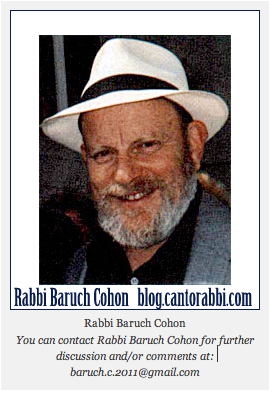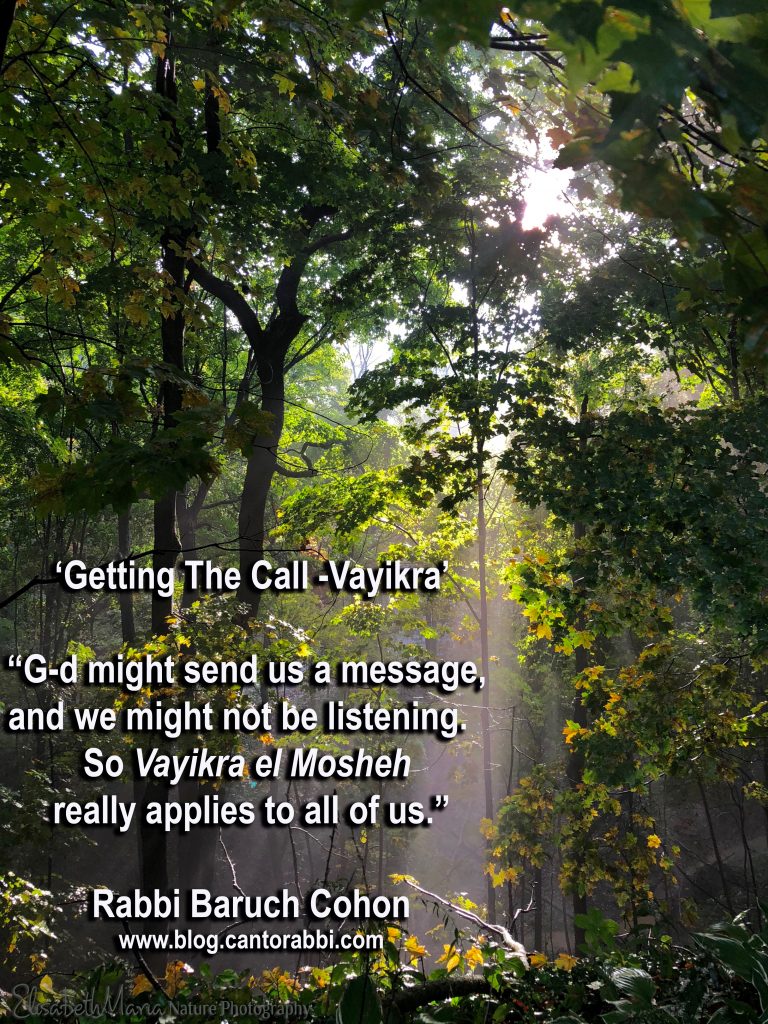
GETTING THE CALL – Vayikra – Leviticus 1:1 ff – by Rabbi Baruch Cohon
Now we begin the book of Leviticus. Its first three words are worth dwelling on. Unlike most English translations, this book does NOT open by saying “The L-rd called to Moses, and spoke to him from the Tent of Meeting.” The Hebrew original starts with the three words “Vayikra el Mosheh” – literally, “He called to Moses.” Who called? The text does not say. Of course, next come the words “the L-rd spoke to him,” but we still don’t know who called Moses to attention.
True, most commentators assume that the call came from G-d, because the immediate previous section, at the end of Exodus, specifically tells us that Divine glory filled the Tabernacle. So if a call came to Moses from there, it had to be the voice of G-d. It remained for the Lubavitcher Rebbe to ask “Who is calling?” and to differ with some earlier commentators as to the basis, but he too assumed the Divine source.
Now let’s take another look at this text. The Torah not only does not waste words, it does not omit words. No message reaches its target unless that target is there to receive it. Every target – particularly a human ear – needs to be ready, needs an alert, an alarm, a call to attention. The source of that call could be natural or supernatural, human or animal or technical. G-d might send us a message, and we might not be listening. So Vayikra el Mosheh really applies to all of us. If a Moses needs a call, what about us ordinary people? A baby cries, a bird squawks, thunder roars, tires shriek, a plane power-dives – were you listening? Maybe you weren’t, but you are now. And if you have the head and the heart to get the message, you can save yourself and those you love.
Who called to Moses? It doesn’t matter. Moses heard the call, and was ready. So may it be for us.


